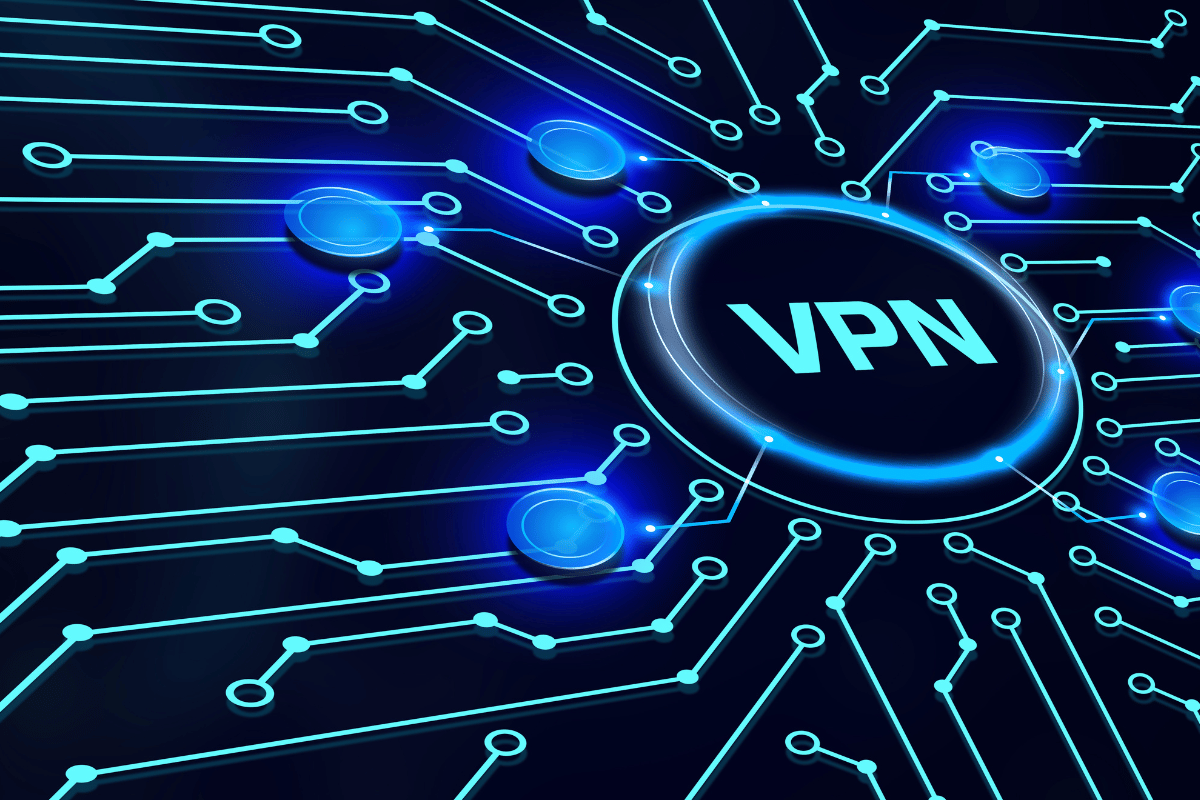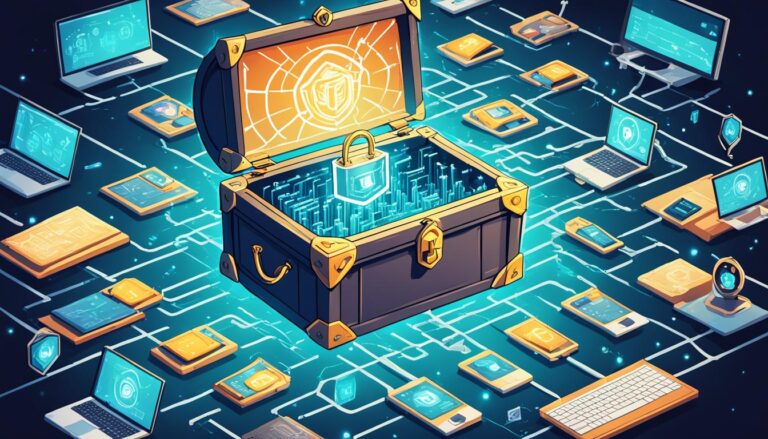How Do I Protect My Internet Privacy with a VPN?
Protecting online privacy is vital today. Threats like hackers, data trackers, and government spying are common. A Virtual Private Network (VPN) is a strong defense. It encrypts your connection, hiding your activities. Read on to discover how a VPN can safeguard your privacy.
What is a VPN?
Cloak your digital footprint using a Virtual Private Network. VPNs shield your online activities, encrypting data and concealing IP addresses. This invisible barrier safeguards your presence in the vast cyber realm. It thwarts hackers, prying websites, and nosy ISPs. Browse incognito, unlock restricted content, and safeguard your information. Reclaim control over your internet experience.
Why is Internet Privacy Important?
Your digital footprint grows with each online visit. Websites monitor browsing, social platforms dissect interests, and ISPs may track data. This information fuels advertisers, profilers, and cybercriminals. Safeguarding internet privacy keeps personal details secure. Vigilance online protects against unwanted data exploitation.
How a VPN Protects Your Privacy
A VPN offers several benefits to enhance your privacy:
- Anonymity: Cloaking your digital footprint, a VPN shields your true IP address. This veil of anonymity thwarts attempts to link your online wanderings back to you.
- Encryption: Encrypted data shields your online activity. A VPN scrambles information, foiling prying eyes. Even intercepted, your digital footprint remains unreadable to snoopers.
- Access Restricted Content: VPNs offer a digital passport. By linking to servers worldwide, these tools sidestep geo-blocks with ease. Simply choose a server, connect, and enjoy familiar content from afar.
- Safe Public Wi-Fi Use: Hackers on public Wi-Fi can steal your data. However, a VPN protects your information. It creates a strong barrier. This ensures safety, even in risky locations.
How to Choose the Right VPN
Choosing a VPN can be tough due to many options. Here are key factors to consider:
- Security: Choose a VPN boasting robust encryption, zero logging, and automatic connection termination. These features safeguard your online privacy and data security.
- Servers: More servers mean better access and faster speeds.
- Speed: Avoid VPNs that slow down your connection. Look for fast, stable options.
- Usability: Choose user-friendly apps, especially if you’re not tech-savvy.
- Cost: VPNs vary in price. Free ones exist, but paid options typically offer better security and privacy.
- Reviews: Peruse online reviews to gain deeper insight into these VPNs’ features and performance. Make sure that you are using a trusted website to get the best VPN’s reviews like expressVPN review.
The Pros and Cons of Using a VPN
Using a VPN has many benefits, but also some drawbacks.
Pros:
- Better security and privacy
- Access to restricted content
- Protection on public Wi-Fi
Cons:
- Slower speeds
- Monthly fees
- Some websites block VPNs
When Should You Use a VPN?
Using a VPN is wise for internet privacy. However, it’s especially crucial in certain situations. Let’s explore when a VPN is your best privacy protector.
1. Traveling or Using Public Wi-Fi Networks
Public Wi-Fi attracts both users and cybercriminals. Airports, hotels, and cafes offer free connections, tempting travelers and remote workers. However, these networks also draw data thieves, poised to intercept sensitive information. Your personal details and online activity lie exposed on these unprotected networks. A VPN scrambles your information, thwarting would-be thieves. With encryption in place, intercepted data becomes useless gibberish.
2. Online Shopping or Banking on Unsecured Networks
Unsecured networks pose risks for online shopping and banking. Public Wi-Fi leaves sensitive data vulnerable to theft. VPNs thwart eavesdroppers, rendering your transactions invisible to prying eyes. For frequent online shoppers and bankers, VPNs offer a savvy security boost. They transform risky public networks into safe havens for financial activities.
3. Accessing Region-Locked Content
A VPN opens digital doors worldwide. Connect to foreign servers and stream like a local. Binge American Netflix from Paris or unlock BBC iPlayer in Tokyo. Those facing online censorship find freedom through virtual borders. With a few clicks, geographic walls crumble and a world of entertainment awaits.
4. Avoiding ISP Throttling
A VPN masks your online activity, thwarting ISP throttling. This tactic, employed by providers to limit high-bandwidth users, slows connections during streaming, gaming, or torrenting. By encrypting your data, VPNs prevent ISPs from identifying and restricting specific types of traffic. This ensures consistent speeds and uninterrupted service, even during data-heavy tasks. There’s no provider meddling.
5. Bypassing Censorship and Firewalls
In nations grappling with digital censorship, VPNs offer a lifeline. These tools mask your IP and reroute connections, granting access to blocked social media, news, and global content. By bypassing government restrictions, VPNs empower users to navigate the open internet freely. From expressing opinions to consuming diverse information, people worldwide leverage this technology to overcome digital barriers.
6. Maintaining Privacy While Researching Sensitive Topics
Privacy shields activists and journalists. A VPN secures your online footprint, masking searches on sensitive topics. Political issues, career shifts, medical queries – all stay hidden. This tool proves crucial for those needing anonymity in their digital pursuits. It safeguards your identity, keeping prying eyes at bay. Whether researching controversial subjects or protecting sensitive information, a VPN offers essential security.
7. Remote Work and Data Security
Working from home demands secure connections. VPNs shield company networks, thwarting cyber threats. They encrypt data transfers and communications, safeguarding sensitive tasks. Many firms now require VPN use for remote server access. This protects vital information from prying eyes. For today’s distributed workforce, VPNs have become an essential tool.
8. Gaming and Protecting Against DDoS Attacks
DDoS attacks loom over competitive gamers, threatening lag and disconnections. VPNs offer a shield, cloaking IP addresses to thwart these disruptions. But protection isn’t their only perk. Savvy players harness VPNs to tap into speedier servers and snag early game releases across borders. Privacy, once the main draw, now shares the spotlight with these strategic advantages. From safeguard to game-changer, VPNs now offer gamers more than just protection. These versatile tools elevate gameplay, boosting both security and enjoyment for digital adventurers worldwide.
Conclusion
Protect your digital footprint with a trusted VPN. Browse confidently as your data stays secure. Research reputable providers and read reviews to find your ideal match. This simple step safeguards your online privacy, shielding your internet activity from prying eyes. Invest wisely in your digital security and surf with peace of mind.






